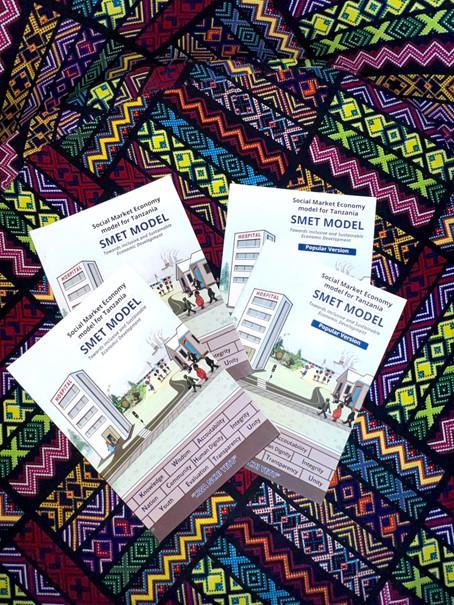Theoretical Background of Social Market Economy
As Leipold states, “Economic management was, and is always, in need of and dependent on an order (set of rules and institutions)” (Leipold 2008, p. 144). It is believed that without a proper and clear economic order, it will be very difficult for Tanzania to achieve economic growth that is inclusive. At the same time, market economy is deemed necessary for an efficient economy. However, pure free market economy has a danger of increasing poverty because it is not inclusive as few people or companies may exploit others in the process of trading. The state therefore has a role to play in order to harmonise the situation, but the level of control must not be at the expense of competitiveness and innovation.
Market Economy
In contrast, in “a market economy, the economic processes are independently planned by individuals or economic units while being coordinated via markets and prices. Market economy therefore represents a system of decentralised planning and coordination of the economic processes where the degree of
scarcity of goods and services is expressed in market prices” (Leipold 2008, p. 144). With regard to the institutional order and the policy question of ‘what shall the relationship between private responsibility and intervention by the government be?’, different concepts of market economy have emerged – between the liberal concept and the concept of welfare, the concept of Social Market Economy is to be located (Leipold 2008, p. 145).
Social Market Economy
Social Market Economy combines private enterprises with regulation and state intervention in order to establish fair competition – maintaining a balance between a high rate of economic growth,
low inflation, low levels of unemployment, good working conditions and social welfare. “The aim of the ‘Social Market Economy’ is an appropriate synthesis between the liberty of the
market and social balancing based on government interventions” (Leipold 2008, p. 145). As opposed to other economic models, Social Market Economy is inclusive of the local people, allowing them to participate and positively contribute to the economic growth of their country.
Social Market Economy – An Introduction
According to the European People’s Party (EPP) ‘Social Market Economy’ is the expression of a philosophy committed to a human society aiming at the dignity, well-being, self-determination,
encouragement, freedom and responsibility of all individuals. The founding fathers of the Social Market Economy – Alfred Müller Armack, Walter Eucken, Leonhard Miksch, Franz Böhm, Wilhelm Röpke, Alexander Rüstow, Konrad Adenauer and Ludwig Erhard – envisioned and implemented an economic system a) where economic growth and social sustainability were no longer opposed to each other but would work in harmony in order to ensure a sustainable and positive development for society at large and b) that was intended to combine the values of individual freedom, solidarity and subsidiarity (EPP 2009, pp. 2-3).
The Konrad-Adenauer-Stiftung e. V. (KAS) describes Social Market Economy as “a model that puts the human being at the center of its attention and sets out from there, from the individuals, their
capacities, needs, and motivations. This is a clear distinction from socialist approaches, which centre on the collectiveness and claim the right to direct and intervene, rather than adhere to economic
governance” (KAS 2008, p. 9).




